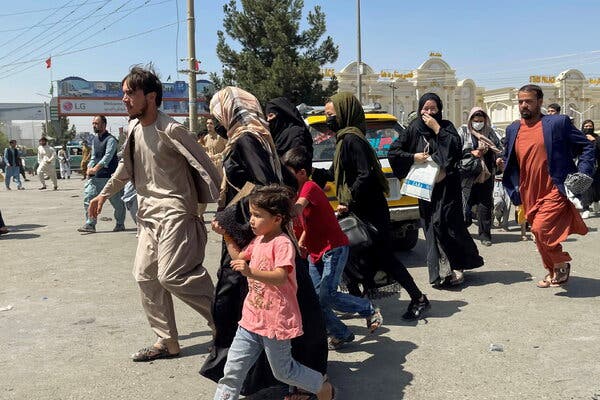Yesterday, a horrific video from Afghanistan broke the internet. Hundreds of Afghans, in a desperate bid to flee the country, were captured in the footage running after and clinging to the body of a US Air Force plane as it prepared to depart Kabul airport.
Over the weekend, the Taliban hijacked the government and assumed total control of the capital city— it wasn’t long before they had the whole country to themselves. The central government was disbanded; Ashraf Ghani, the president of Afghanistan fled the scene unannounced, leaving what remained of his administration in the mercy of the Taliban.
Afghani citizens aren’t the only ones affected by the current crisis. African entrepreneurs and skilled workers who run operations in Kabul are also dealing with the consequences of the Taliban’s actions. How are they coping with this heat? Are they packing their loads and fleeing or are they staying put to see where the leaf drops?
Last year Olumuyiwa Olowogboyega, former senior reporter, TechCabal, interviewed Vincent, a Nigeria Cybersecurity expatriate working out of Kabul, who described Afghanistan as a city on the edge, an unstable mountainous city with two presidents.
More recently, Chekkit, a Nigerian authentication and product tracking startup, expanded to Afghanistan after landing a partnership with the Afghanistan Ministry of Health to help in combating the endemic counterfeit medicine products in the country.
In a conversation with Tosin Adelowo, Chekkit CMO, I asked: why Afghanistan? Tosin disclosed that the country was urgently looking for a solution to the counterfeit market plaguing its cities and streets and “Chekkit has the perfect solution to the problem” and that, alongside other brokering factors, is a major determinant of the expansion.
After a successful pilot of Chekkit’s drug verification solution in collaboration with their blockchain partner, Fantom Foundation (which was the major broker of the deal), the Afghanistan Ministry of Health announced the rollout of the service nationally on the 2nd of May 2021.
Now, a little over three months later, Chekkit is pulling the plug on all its operations in Afghanistan. Their exit wasn’t much of a decision as all their partners have been forced to exit the country.
“We have discontinued our communication/operation in the region as our partners have also exited the region due to the civil unrest,” Adelowo told TechCabal in an email. ”Our heart is with the people of Afghanistan and we pray for strength for them to withstand and surpass the current issues.”
Chekkit’s exit is just the beginning of a series of backward movements that are expected to happen in Afghanistan as a result of this unrest. And in the absence of Chekkit’s solutions, and similar solutions in the market, there’s a likelihood that counterfeit products will return with unchecked and unverified vengeance.
Since the takeover, different analyses have been released on the impact it will have on trade and economy of the country. According to Times Now, the Afghan economy has been reliant on international aid with a limited private sector. Nearly half (around 44%) of its workforce is in agriculture. Observers predict that with the Taliban in control, international trade will come to a standstill, leading to a surge in smuggling.
The prediction is already happening, we can see that international businesses and organisations are already closing shops and evacuating their people. Though after the capital takeover, the Taliban announced that the war is now over, can the dust settle that easily?
“Today is a great day for the Afghan people and the Mujahideen. They have witnessed the fruits of their efforts and their sacrifices for 20 years,” Mohammad Naeem, the spokesman for the Taliban’s political office, told Al Jazeera TV.















